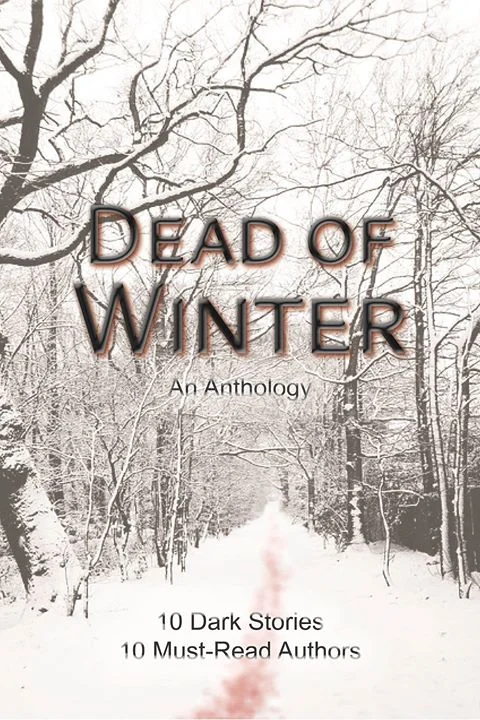You don’t need a degree or workshops to write. I’m sure they help most people figure out the craft of writing but it won’t make you a better writer. Only you can do that with practice.
It wasn't until the age of 31 that Ohio-based author Justin Chasteen begun to take his passion for writing seriously. Making up for lost time he has published several short stories, won an honorable and silver honorable mention from the L. Ron Hubbard Writers of the Future Contest, written novels in a range of fiction genres and holds a degree in Creative Writing from the University of Southern New Hampshire. He talks to us about developing the protagonist before plot, sympathizing with a character’s situation and how a daily word count goal keeps him on track.
Please give us a brief overview of yourself and your work.
I’ve been writing for three years now—obviously reading a lot longer than that. I think the thirty years of reading helped me ease into writing. My first writing attempt was a novel of 220,000 words. I plan to rewrite that novel later this year for publishing. After six months of writing, I decided to go back to college for a Creative Writing degree. Thanks to my degree I have the capability to be an editor too which I do on the side. I’ve written three other manuscripts. I’m currently working on my fourth. My novels are all fantasy. My short stories are a blend. It’s always fiction. I also cover football and baseball/softball for a local newspaper. It’s nice to write about real things now and again.
What made you want to be a writer?
I’ve wanted to be a lot of things. It took me a while to learn that you can’t force yourself to be something you’re not—in regards to passion and talent. I’m not really sure what made me want to be a writer. I had read two novels that were really inspiring Tigana by Guy Gavriel Kay and The Emperor’s Blades by Brian Staveley. I finished Blades I thought ‘what the hell, I’ll give it a try’. At the time Staveley was a debut author so I emailed him and picked his brain as a fan. He’s mentored me ever since. He’s been a big help in regards to writing discipline and overcoming challenges.
What inspires you to write?
The biggest inspiration is that I simply enjoy doing it. As far as inspiration for fantasy material, it always comes from the character before plot. In each of my novels, I had a good sense of the protagonist before I ever knew the world or plot. The more you learn about the character the more the world expands and the plot develops. I’m telling their story, although I also make things hard for them in the process—as they also do for me.
A few of my short stories have been more realistic fiction. A lot of that inspiration comes from random emotion. I put myself in the character’s situation and try to resolve their conflicts. In my short story The Old Man Next Door a man has lost his child. He’s trying to cope with the loss and doing a terrible job of it. My inspiration came from being a father. When something is wrong with your child and you can’t control the outcome, you tend to lose your mind a bit. I think my son, Owen, at the time had a very basic cold and it was really bothering me. It put me in a dark place and I wrote a dark story.
Is there any incident that has happened along your writing journey that you’d like to share?
The first experience I had with writing fiction was in my sophomore English class. Mr. Shigley (who insists I call him Clark now that I’m an adult) was an incredible visionary when it came to fiction and literature. I had zero interest in school at the time. For one assignment we had to write a short story. I wrote a dystopian piece that he absolutely loved. He told me I had a talent in writing and pushed me to apply myself more. Sadly, I didn’t care enough to keep at it. Fourteen years later I discovered that passion for writing that he had seen way before I ever did. It blows me away that someone can see that spark when you can’t even see it in yourself. Kids listen to your teachers—they know things.
Do you have any advice for aspiring authors?
The typical answer: write. Writing is the only way to get better. It’s like any sport. The more you do it, the better you become. I write 500 words minimum, 5 days a week. It’s a routine you have to get yourself into. Often the writing sessions goes beyond 1,000 words, but you really want to see your set number as a goal. Even if you sit down and write complete shit, it’s still writing. You can always delete it later and make it better. I had the rare luxury of developing my writing style while writing a novel. Since that novel, I’ve grown as a writer. If you would have told me three years ago 'Justin, in three years you’re going to rewrite this novel and you’re going to be excited about it' I probably would have given up. You can’t get better if you don’t write. There’s no rule that you have to show anyone your work until you’re ready. There’s no audience until you say so. You’re in control.
Also: write short stories. I’ve made the mistake of writing as many novels as I have short stories. Short stories help you develop as a writer much more than a novel because you have the ability to change the plot, characters, style, tense, and all the other stuff. It helps you really see what your strengths are and what you need to work on. I’ve always felt my strengths are characters and my weakness is visuals. So I’ll sit down sometimes and write a ten-page story of a man describing an apartment building or a corpse. It’s good to do that in third-person because I feel that it’s easier to write in first-person. A writer needs to step out of the character and tell their story from above instead of inside.
Any advice for approaching publishers?
The best way to approach a publisher is to study their theme. If someone publishes YA fiction, they’re not going to be interested in a story about a ninety-year-old man who skins pedophiles (I need to jot that idea down). Every publisher is different; every publisher is run by someone with their own opinion. Too many writers get discouraged by rejection. Twelve publishers passed on Harry Potter. The publisher isn’t always right, so don’t get discouraged. Submit, submit, submit. I don’t think I’ve ever had a story get published within a year of being written. Keep that in mind: one year. Submit for one year then start getting your hopes up. If the publisher gives advice take it with a grain of salt. In the end, it’s your creation.
How do you handle rejection as a writer?
My rule: for every publisher that turns down your story, submit it to two more the same day. Don’t accept the rejection as a denial of creativity. Just don’t stop. For every ten people that don’t believe in your work, there’s one out there that will cherish it. That still adds up to a lot of people.
What do you think is the biggest marketing challenge for new authors?
Identity. I see a lot of self-published authors who plug the same thing over and over: their book. 'Hey buy my book. This is my book. Check out my book.' That’s like saying, 'Hey, give me 20 hours of your time, please. Trust me.' I really don’t have an answer for this problem. Outside of friends and family, you have to acquire fans on your own. That means you have to get their attention. People don’t have time to simply sit down and read anymore. You really have to pitch why your work is worth their time. Engage those who want to talk about your writing. About once a week I’ll have a random person message me about how much they liked one of my stories. That’s a big deal. They spent twenty minutes of their time reading something I created. Show appreciation. I think the authors who engage with their fans will develop a following more than those authors who just constantly post a link of their work.
What methods of book marketing do you find the most effective?
In fantasy writing book covers are important. I don’t know where everything went wrong, but it seems publishers only want illustrated swords or oversexualized females in tight leather holding a sword that’s twice the size of their body. Tor is a really good example of a fiction publisher who develops the identity of the story and author through the cover. I can’t even look at the best-sellers in bookstores because all the covers look the same: a landscape, a feather, a half-empty/full glass. I’m always intrigued by unique covers. I want to be able to look at a cover and see a story. Last week I bought A Handmaid’s Tale by Margaret Atwood. I had a list of ten books I wanted and hers was the first one to tell me a story based on the cover. Well done Anchor Books Publishing.
Is there anything else you’d like to share with aspiring writers?
The biggest thing is to write. For so many years the idea of writing would enter my mind and I would ignore it because I 'didn’t know how to write.' That was easily fixed by opening a book and observing formatting and punctuation. You don’t need a degree or workshops to write. I’m sure they help most people figure out the craft of writing but it won’t make you a better writer. Only you can do that with practice.
Find out more about Justin’s work via his website, Instagram or Twitter. The Old Man Next Door is available from Write Out Publishing, The Shattered Galaxy from River & South Review and The Huntress of the Bur from Mighty Quill Books.

















